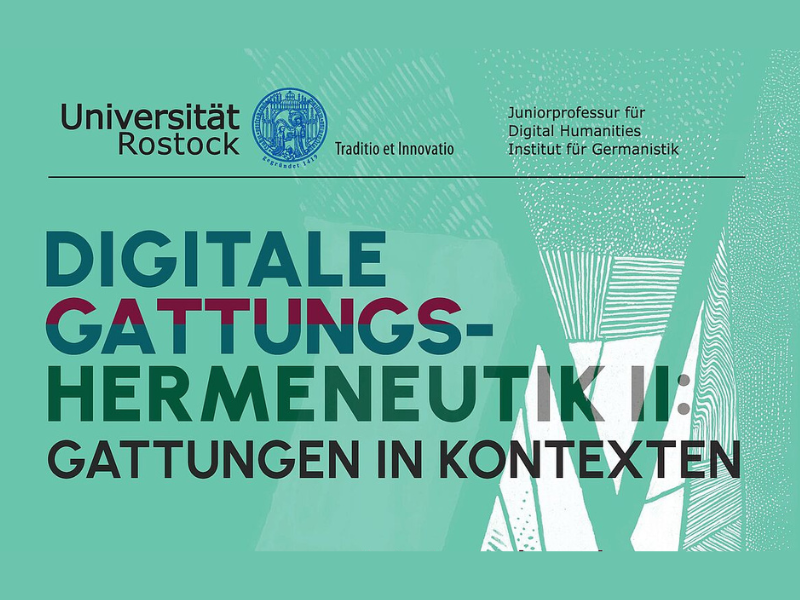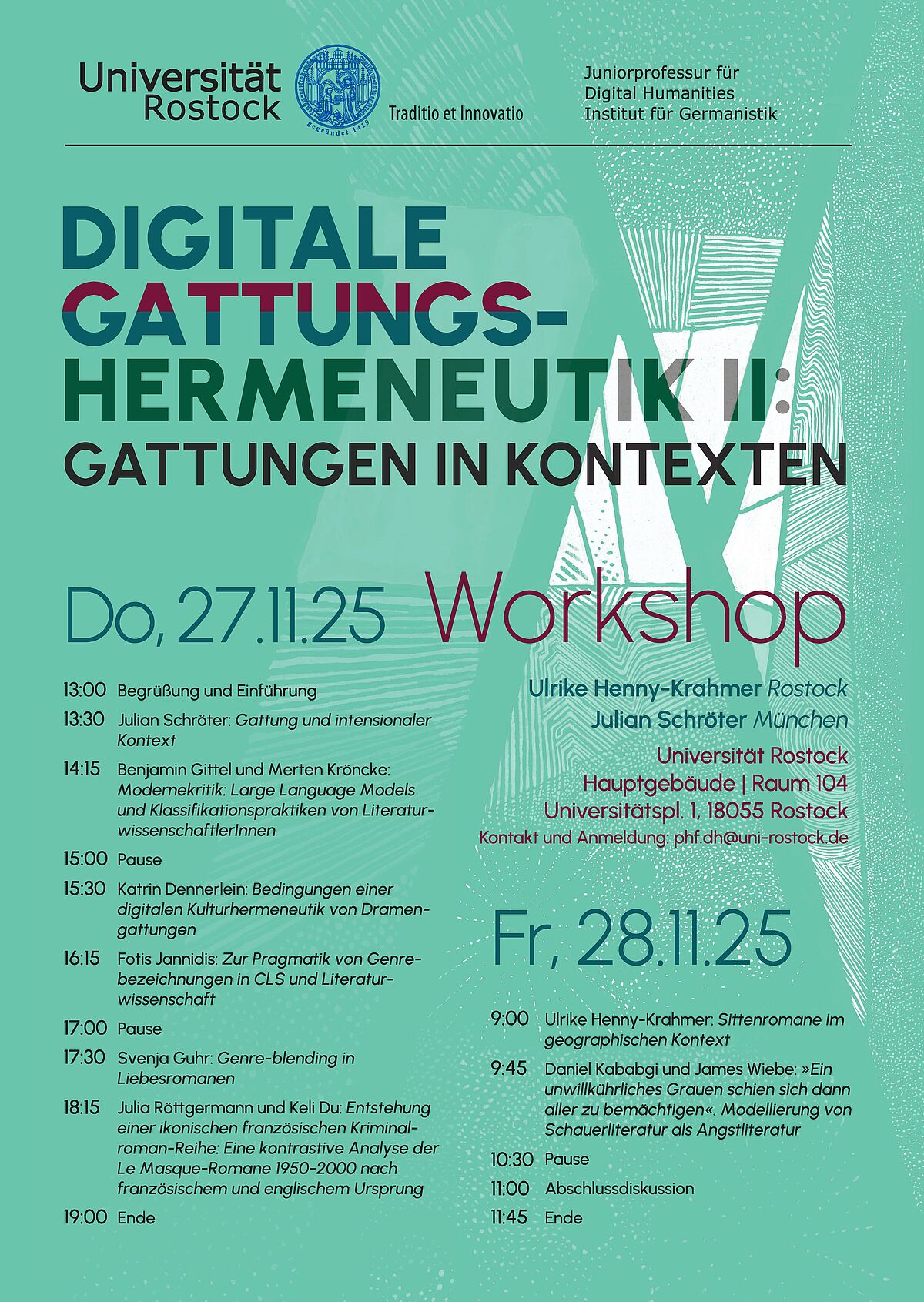Digital Genre Hermeneutics II: Genres in Contexts
Workshop on different contexts of literary genres and their examination using digital methods

Date:
27.11.2025 bis 28.11.2025Place:
27 November 2025, 1:00 p.m. – 28 November 2025, 11:45 a.m.
Participation is free of charge. Please register (at phf.dh uni-rostock.de (phf[dot]dh[at]uni-rostock[dot]de)).
uni-rostock.de (phf[dot]dh[at]uni-rostock[dot]de)).
University of Rostock
Room 104, main university building
Categories:
WorkshopContact:
Julia RöttgermannFurther Information:
Veranstaltungsartikel der Universität RostockFrom a hermeneutic perspective, genres can be understood as contexts of literary works that influence their creation, reception and interpretation on the one hand, and their structure, content and style on the other. Comparative little attention has been paid in literary studies and computational humanities to the fact that literary genres themselves are also embedded in very different contexts. The temporal context has been studied most extensively (Underwood 2016, 2019), but there is more: social, linguistic, cultural, geographical, media and material contexts in which genres unfold (on the media contingency of genre, see Meyer 1987; 1995). The workshop focuses on the observation, modelling and analysis of such contexts as part of the investigation of literary genres using digital methods (Hesselbach et al. 2024). It also looks at the development of new corpora (Henny-Krahmer 2023) and recent methodological developments in digital genre analysis, for example with regard to the use of large language models and machine learning. In addition, the workshop will address praxeological perspectives on genre (Martus/Spoerhase 2022, Gittel 2021), the question of the conceptual constitution and vagueness of genres (Schröter 2025), and the relationship between genre and literary history (Gymnich et al. 2017). Overall, the aim is to reflect on and discuss the current state of research on literary genres within computational literary studies.

Literatur:
Hesselbach, R., Calvo Tello, J., Henny-Krahmer, U., Schöch, C. & Schlör, D. (2024). Digital Stylistics in Romance Studies and Beyond. University Publishing heiUP.
Gittel, Benjamin: Fiktion und Genre. Theorie und Geschichte referenzialisierender Lektürepraktiken. 1870–1910. De Gruyter.
Gymnich, M., Neumann, B., & Nünning, A. (Hrsg.). (2007). Gattungstheorie und Gattungsgeschichte. WVT, Wiss. Verl. Trier.
Henny-Krahmer, U. (2023). Genre Analysis and Corpus Design. Nineteenth-Century Spanish-American Novels. Schriften des Instituts für Dokumentologie und Editorik, Band 17. Norderstedt: Books on Demand.
Martus, S., & Spoerhase, C. (2022). Geistesarbeit: Eine Praxeologie der Geisteswissenschaften (Erste Auflage). Suhrkamp.
Meyer, R. (1987). Novelle und Journal, I: Titel und Normen: Untersuchungen zur Terminologie der Journalprosa, zu ihren Tendenzen, Verhältnissen und Bedingungen. Steiner.
Meyer, R. (1998). Novelle und Journal. In G. Sautermeister & U. Schmid (Hrsg.), Zwischen Restauration und Revolution 1815–1848 (S. 234–250). Hanser.
Schröter, J. (2019). Gattungsgeschichte und ihr Gattungsbegriff am Beispiel der Novellen. Journal of Literary Theory, 13(2), 227–257.
Schröter, J. (2025). Zur Modellierung von Unsicherheit: Machine Learning und begriffliche Vagheit am Beispiel der Novellen im 19. Jahrhundert. Book of Abstracts – DHd 2025, 284–288.
Underwood, T. (2016). The Life Cycles of Genres. Journal of Cultural Analytics, 2(2).
Underwood, T. (2019). Distant Horizons. Digital Evidence and Literary Change. The University of Chicago Press.

